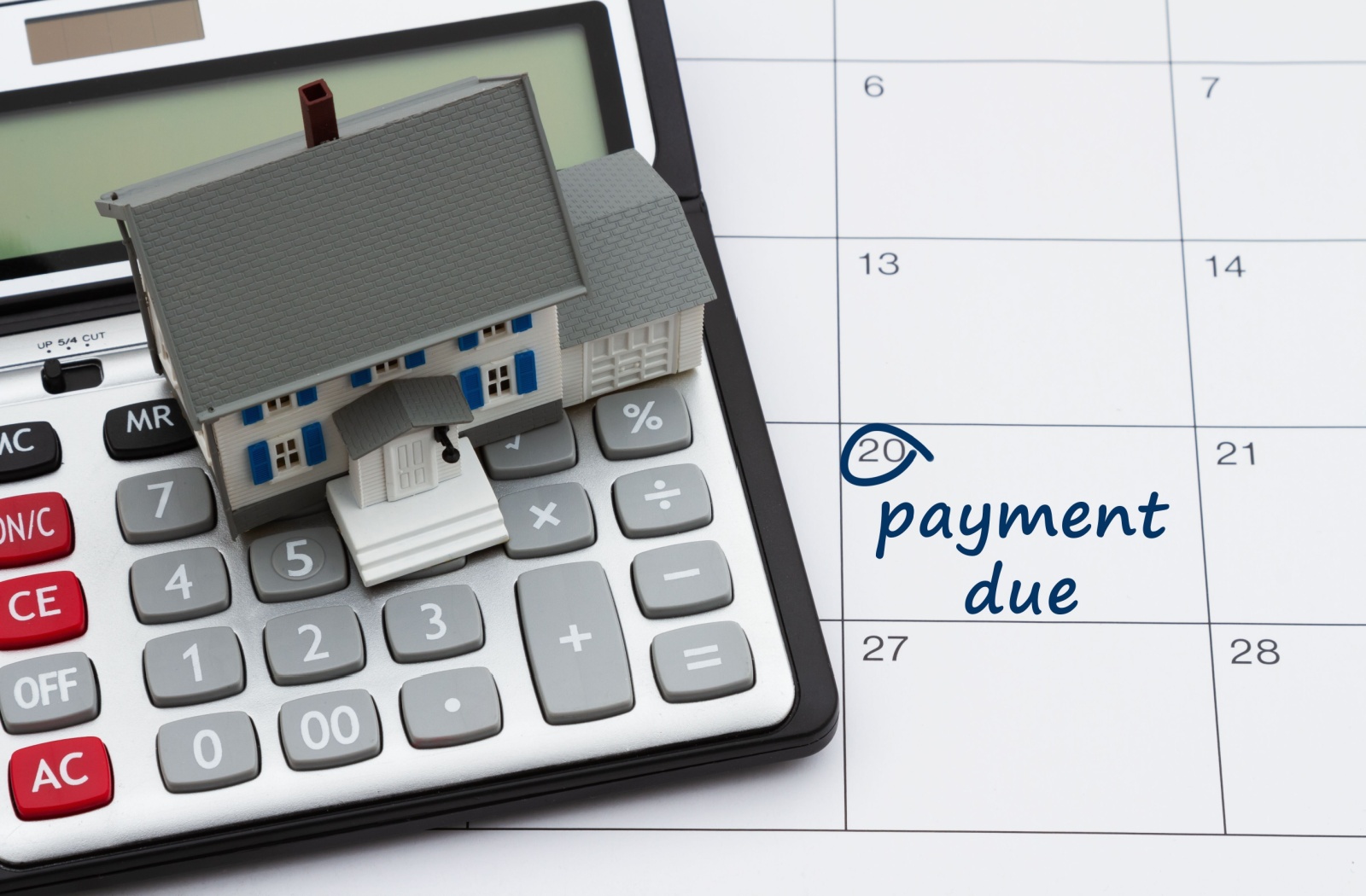AAnyone can experience financial hardships, and while missing a mortgage payment is far from ideal, there’s no reason to panic just yet. Take a deep breath, and tackle this as well as you can.
Being late for a mortgage payment is different than missing it entirely.
Many institutions offer up to a 15-day grace period (aim within 10 days for extra security) if you’re late with your payment. But don’t become reliant on this leniency.
Missing a mortgage payment completely means you’ve missed one payment in your cycle. So, when you owe 12 monthly payments a year but only make 11, you’ve missed one payment.
The consequences for missing a mortgage payment vary but might include penalties such as:
- Lowering your credit score
- Higher fees
- Possibility of losing your home
- NSF fees with your bank
- Lender will always have a record of that missed payment which means it could risk them being willing to renew or refinance with them down the road.
At Mortgage Connection, we believe in solutions, not judgement, and we’re here to help you safeguard your home and financial future.
Missing a Mortgage Payment? Here’s What You Need to Know
Mortgage payments are a legal and financial agreement between you and the lender. Missing a payment breaches this contract. Lenders rely on timely payments, and the penalties for missing a payment (which can be intense) are a way to safeguard their investment.
Most people focus on paying off their mortgage and have no intention of missing a payment. But mistakes happen. If you expect a missed payment, it’s best to call the lender before it happens so they can help before it becomes a late payment. Lenders keep track of missed payments internally and it could prevent you from being able to renew or refinance with that lender at a later date.
The Penalties for Missing a Mortgage Payment
You’ll incur late fees from your bank and lender after missing a mortgage payment. These fees vary depending on your loan details, but it’s a considerable amount. They increase the overall cost of your mortgage, putting extra strain on your finances.
Around 15–30 days, you may notice a significant hit on your credit score. A lower credit score makes getting approved for other loans or credit cards harder. It can contribute to higher interest rates in the future.
Missing one payment may snowball into further missed payments, accumulating debt and making it more challenging to catch up. Many lenders prioritize on-time payments; extended delays can worsen your financial relationship.
Your home may enter foreclosure proceedings after multiple missed payments (typically 3–6 months). Besides the devastation and vulnerability of losing your home, a foreclosure on your financial record heavily damages your credit report and can take years to rebuild.
Missing a Mortgage Payment: The Next Steps
If you have missed a mortgage payment, paying it as soon as possible is ideal. Contact your lender as quickly as possible to explain your situation and ask about repayment options. Don’t wait for them to contact you.
It’s best to get ahead. If you realize a payment might get missed, contact your lender as soon as you can.
We know it’s easier said than done. Crunch some numbers and save where you can because paying in full will help avoid additional late fees and penalties, saving you from further stress down the line. Many lenders are willing to work with you to create catch-up plans, such as spreading the missed payment over several months. Refinancing your mortgage may provide lower interest rates or extended terms to ease your financial burden if you’re consistently struggling with payments.

Can You Skip a Payment on Your Mortgage?
Certain financial institutions can allow homeowners to skip a mortgage payment (called a mortgage vacation), which is better than missing it entirely. This happens usually only once in a case of hardship or if you have prepaid the mortgage and an arrangement has been made.
Skipping a payment doesn’t erase it. Instead, the amount you missed is added to your principal balance, which means you’ll pay more interest over time. To qualify:
- You usually need to be up-to-date on your mortgage payments
- Your lender may require documentation to prove financial hardship
Skipping a payment is a formal arrangement with your lender that verifies your score isn’t negatively affected, even if it comes at the cost of accruing additional interest or extending your loan term, whereas missing a payment without a prior agreement can lead to heavy penalties.
Skipping a payment can be helpful when used responsibly, but it’s not a decision to take lightly. However, you maintain control of your financial situation and an amicable relationship with your lender, providing more financial protection.
How to Stay on Top of Your Mortgage Payments
Prevention is always better and less chaotic to navigate than a cure.
Making an effort with practical methods to stay on top of your mortgage payment can help you avoid the stress and panic of accidentally missing one. Here’s how:
- Set up automatic payments to help verify your bill is settled on time every month. Check with your lender or contact your bank about setting this up.
- Create a budget to track your income and expenses to prioritize housing costs above non-essential spending.
- Build an emergency fund to save 3–6 months’ worth of essential expenses, including your mortgage, to cover unexpected financial setbacks.
- Stay in touch with your lender so they’re aware when your financial situation changes (e.g., loss of income or medical expenses). Notify your lender immediately to discuss preventative solutions.
- Mark your calendar—whether it’s digital or hanging on the wall—with reminders for your payment deadlines to avoid accidental oversights.
Experienced & Skilled Advice for Peace of Mind
Missing a mortgage payment can set off a chain of financial setbacks, from increasing costs to the potential loss of your home. While you can’t always predict financial hardship, you can control how you navigate it.
Whether you’re looking to avoid missing a payment or need help after falling behind, Mortgage Connection is here to provide experienced and skilled support. Connect with our team to learn more.





17 thoughts on “What Happens if You Miss a Mortgage Payment?”
Comments are closed.